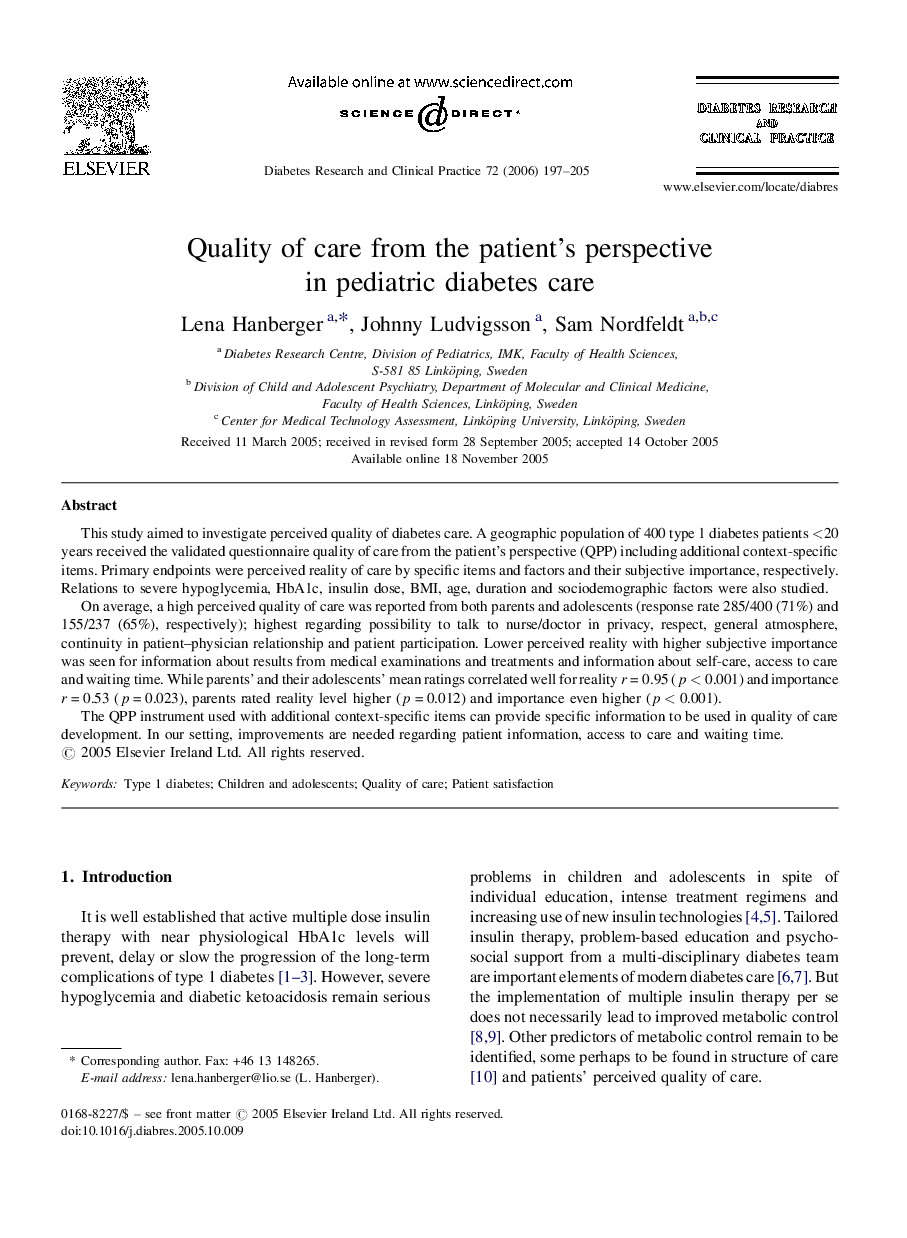| Article ID | Journal | Published Year | Pages | File Type |
|---|---|---|---|---|
| 2799111 | Diabetes Research and Clinical Practice | 2006 | 9 Pages |
This study aimed to investigate perceived quality of diabetes care. A geographic population of 400 type 1 diabetes patients <20 years received the validated questionnaire quality of care from the patient's perspective (QPP) including additional context-specific items. Primary endpoints were perceived reality of care by specific items and factors and their subjective importance, respectively. Relations to severe hypoglycemia, HbA1c, insulin dose, BMI, age, duration and sociodemographic factors were also studied.On average, a high perceived quality of care was reported from both parents and adolescents (response rate 285/400 (71%) and 155/237 (65%), respectively); highest regarding possibility to talk to nurse/doctor in privacy, respect, general atmosphere, continuity in patient–physician relationship and patient participation. Lower perceived reality with higher subjective importance was seen for information about results from medical examinations and treatments and information about self-care, access to care and waiting time. While parents’ and their adolescents’ mean ratings correlated well for reality r = 0.95 (p < 0.001) and importance r = 0.53 (p = 0.023), parents rated reality level higher (p = 0.012) and importance even higher (p < 0.001).The QPP instrument used with additional context-specific items can provide specific information to be used in quality of care development. In our setting, improvements are needed regarding patient information, access to care and waiting time.
